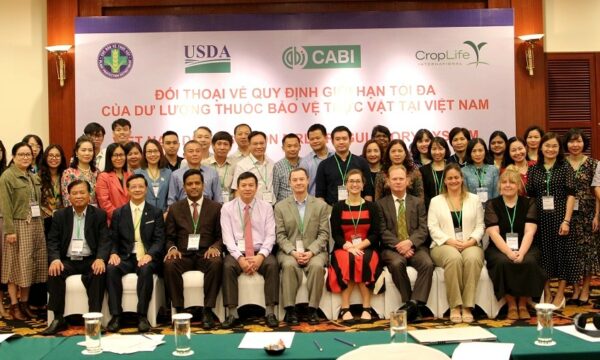Two infants have already died after they were fed milk formula laced with melamine and doctors are fighting to save the lives of over 1250 babies who have fallen ill with kidney stones.
China’s Health Ministry has confirmed that two infants have died from drinking melamine-contaminated formula milk, both in the northwest Gansu province. 340 infants remain hospitalized and 53 are very severely affected. These figures are likely to increase in the coming days.
Melamine is an industrial chemical, which is used for making plastics and glues, and there is little scientific literature documenting its harm in humans. However, in animal tests, melamine has been linked to kidney stones and damage to the reproductive system. Scientists have warned that overall renal function may be affected even after removing kidney stones.
The Chinese media first reported the baby formula milk scandal last week. However, at least seven provinces of China have reported cases of babies with kidney stones, a rare ailment in infants, since June according to Xinhua News Agency. Investigators say that parents had begun complaining about the formula milk since March 2008.
The contaminated milk powder is produced by Sanlu Group, based in Shijiazhuang, Hebei province. Last Thursday, Sanlu issued a nationwide recall of all formula milk powder made before 6 August. Since then shops across China, including Wal-Mart and Carrefour, have withdrawn the milk powder from their shelves.
Sanlu is the biggest producer of powdered milk in China, and is 43% owned by a New Zealand dairy export giant Fonterra, the world’s biggest milk trader. Fonterra said it had urged Sanlu to recall the product as early as six weeks ago, but Sanlu did not order a recall until last Thursday.
New Zealand Prime Minister, Helen Clark, said her government learned of the contamination problem on September 5, then "blew the whistle" three days later by informing Beijing after local Chinese officials refused to act.
However, according to the Chinese Health Minister, Gao Qiang, a series of lawsuits has been brought against the Sanlu Group alleging contamination as far back as March. Chinese authorities have so far seized 2,176 tonnes of milk powder from a Sanlu warehouse and recalled 8,218 tonnes already sent to market. Regulators have also ordered Sanlu to halt production of its baby formula milk.
The police have arrested 19 people so far while 78 others have been interrogated, according to Yang Zongyong, vice governor of the northern province of Hebei where Sanlu is based. All 19 detainees are from private milk-collecting stations, which pick up milk from dairy farmers. Investigators believe that melamine may have been added to the milk to fool quality tests after water was added to fraudulently increase the milk volume.
Melamine has no nutritional value but is about two-thirds nitrogen by weight, and nitrogen levels are often used as crude indicators of protein content in food commodities. It has been known for a long time that melamine can be used to falsely boost nitrogen levels in feeds as demonstrated by Cattaneo & Ceriani (1988)*.
It is unclear whether any of the infant formula milk has been exported. However, the World Health Organisation said it was monitoring the situation and providing technical assistance to China. Meanwhile, the U.S. Food and Drug Administration (FDA) advised U.S. customers to stay away from all infant formula from China. The FDA is concerned that some Chinese infant formula may be imported into the United States illegally and sold at ethnic groceries.
The previous food safety scandal involving melamine occurred last year (read more), and triggered one of the largest pet food recalls in U.S.history. Melamine-contaminated ingredients were then identified in a consignment of wheat gluten and rice protein concentrate imported from China and used to make many brands of pet food. As a result, thousands of cats and dogs in the United States suffered kidney failures and kidney stones, and melamine also spread to meat and fish supplies (read more).
The latest food safety scandal(s) underscores a continuing vulnerability of the food chain supply to melamine misuse. It is clear that current food safety standards need to be reviewed. After the scandal, China’s Health Minister, Gao Qiang, has called for the introduction of a new system to take food safety supervision in China "to a new level". The introduction of compulsory testing of foods and food ingredients for the presence of melamine would be a step in the right direction.
*Reference: 1. Cattaneo, P. & Ceriani, L. (1988). Melamine in animal meals. Tecnicia Molitoria, 39: 28-32.
Related News & Blogs
Tripartite collaboration highlights sustainable biological control to fight crop pests in China and South-East Asia
The power of tripartite collaboration has been highlighted at a workshop focused on sustainable biological control and Integrated Pest Management (IPM) to fight a range of major crop pests in China and South-East Asia, particularly Malaysia. CABI, the…
22 January 2025




